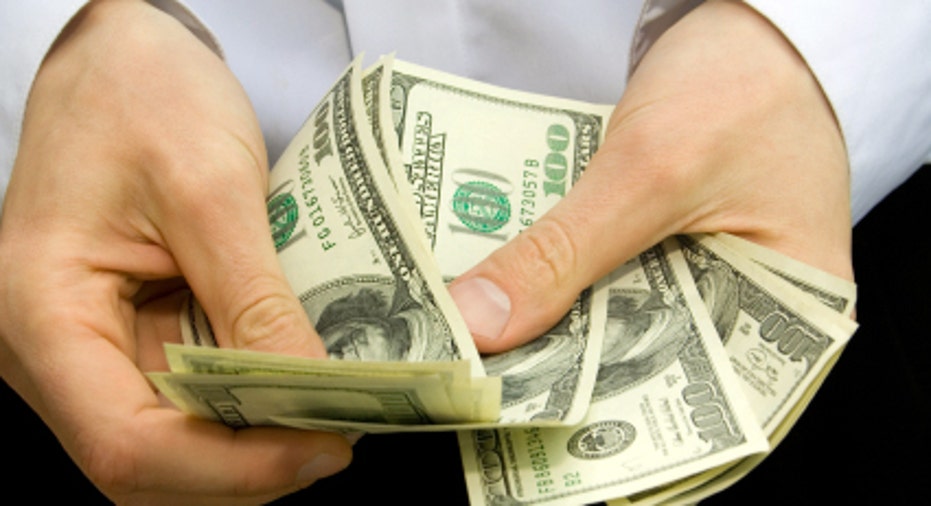Using Money to Self-Medicate?

If you've been trying to change your spending habits only to find yourself yet again having to dig yourself out of debt, you may be going about it the wrong way. The problem may not be with your budget; the real culprit may be your mindset.
"Our natural tendency is to resist difficult emotions, so we medicate them," says Richard S. Kahler, a Rapid City, S.D.-based financial adviser and co-author of the book, "Conscious Finance: Uncover Your Hidden Money Beliefs and Transform the Role of Money in Your Life." "To do that, some choose alcohol, some choose eating and some choose overspending."
Ironically, the path out of debt can be particularly painful for those who overspent because the purchase was supposed to make them feel better. Here are some emotional triggers to watch out for and what to do if you've fallen into an emotional money trap.
- Using money to escape from grief. A traumatic experience such as a death or a divorce can leave you reeling with emotions of sadness and loss. Splurging on yourself can feel good -- temporarily giving you a short reprieve from those heavy feelings. That's what Andre Santos of Bowie, Md., found out when the pain of divorce prompted him to take a last-minute trip to Panama. While Santos had the money to pay for the trip, he admits the motivating factor for him to buy the plane ticket was to "get away and clear my head."
- Using money to get away from guilt. If you believe you've let someone down or hurt someone you love, guilt can make you want to buy things to win that person's forgiveness, says Nicole Cutts, a psychologist based in Washington, D.C. It's also not uncommon for parents to have feelings of guilt because they can't afford to give their children the upbringing they would like to give them. As a result, parents may impulsively spend money on experiences they can't afford such as a sudden trip to DisneyWorld.
- Using money to ease loneliness. Loneliness can be a big driver of impulsive spending because people often use money to have an interaction with another person, even if it's a sales clerk or the friend that you're shopping with, says Marie McNabb, a financial therapist in Seattle. Many of us don't think twice about getting together with friends or colleagues over dinner, drinks or coffee. "It's just not as much fun to say 'let's go take a walk' as it is to say 'let's go do lunch,'" McNabb says. Others spend money because they have no one to spend time with so they channel their loneliness -- and cash -- into costly experiences that distract them from those feelings.
- Using money to counter rejection. When people feel disappointed or rejected, whether they failed to get a promotion or were dumped by a romantic partner, there is a sense of being unable to control the direction of their lives. Money provides a cure for that feeling since spending it is a way to quickly exert some influence over your experience, McNabb says. "You can pick what you want and put it in your shopping cart and bring it home," she says.
Changing the Behaviors
So how do you know that you're spending from a place of emotion? "If you are buying something that you don't need and it's going to cause you financial hardship, then that is a big clue that you are doing this for some emotional reason that is not healthy," says Cutts.
Another sign is if you regularly buy things that you never use. If you drop hundreds of dollars a year in a bookstore only to have a shelf full of unread books, there's something about the shopping process that's emotionally gratifying to you since the purchases themselves don't hold your attention, McNabb points out.
If you overspend once after a painful experience give yourself some slack, but if you notice a pattern of irrational spending consider the following steps:
- Track your spending and emotion. Many financial advisers will tell you to track your spending when you're setting up a budget. Take that advice one step further and write down not only what you spend but how you're feeling when you make each purchase. You may see that a particular emotion has you reaching for your credit card more frequently.
- Practice mindfulness. Emotions start as a sensation in the body, says Kahler. Mindfulness is the practice of focusing your attention on those bodily sensations and recognizing what they mean. With practice, you may realize that the tightening of your stomach indicates fear, for example, and that awareness can stop you from acting impulsively. When you get to the checkout counter, "just being able to think, 'I'm feeling sad,' can often be enough to stop the harmful financial behavior that is about to happen," Kahler says.
- Take money out of the equation. People who spend money out of guilt, loneliness or other emotions often are trying to create experiences and memories, says Cristy Cash, director of counseling and education at Consumer Credit Counseling Service of Central Oklahoma. Find free ways to do that such as a movie night in or a potluck with friends.
- If you feel stuck or as if you can't change your behavior on your own, consider therapy or joining a support group such as Debtors Anonymous, suggests Cutts. Taking the time to acknowledge and understand your feelings will make you a better money manager, says Kahler. "Every financial behavior makes perfect sense when you understand the underlying emotion."
See related: How 'mindfulness' can curb impulse spending, Know the 8 emotional spending triggers



















